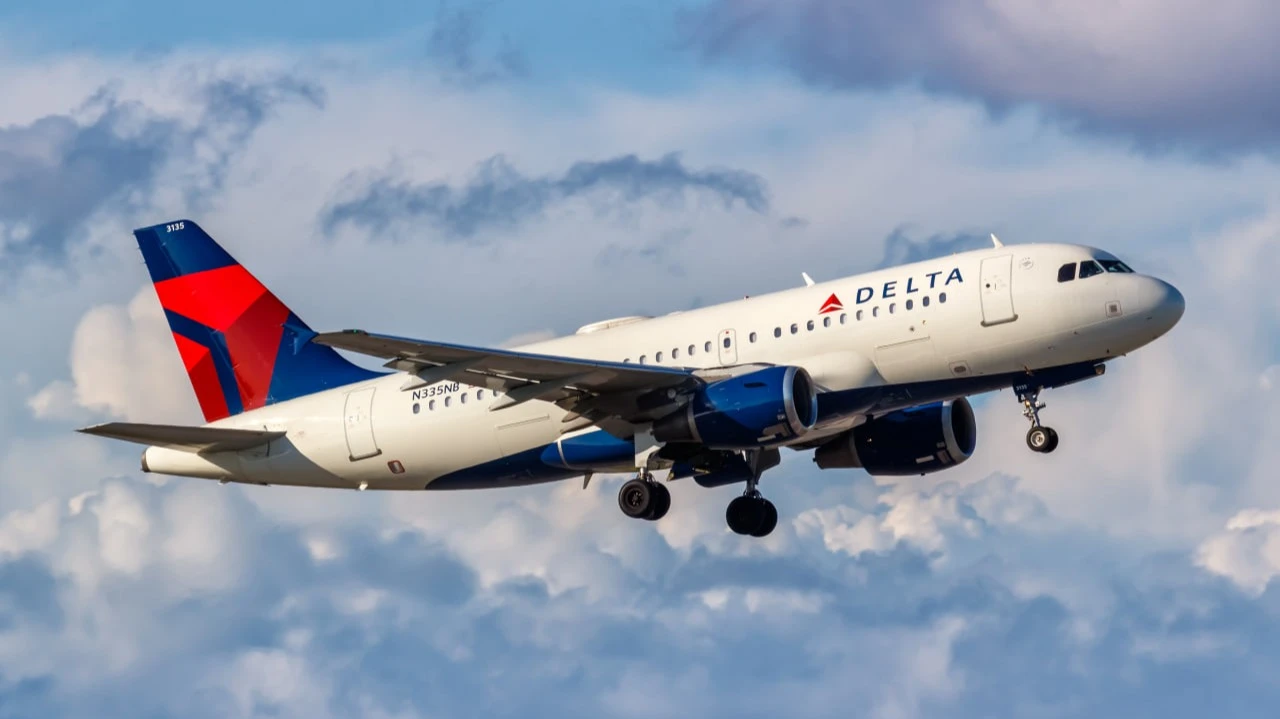Delta beat earnings expectations. Why does skepticism persist on Wall Street?
The airline considers the current situation "remarkably stable"

Delta Airlines, which had previously withdrawn its profit forecast because of the trade war, regained confidence and gave year-end guidance. Management said that demand from consumers is recovering. Some analysts consider such optimism premature and point out that less affluent travelers remain under pressure.
Details
Delta Air Lines expects adjusted earnings this year of between $5.25 and $6.25 per share, says the airline in an updated forecast. The middle of that range exceeds analysts' average forecast - they expected $5.35 per share, wrote Bloomberg. In January, Delta forecast adjusted annual earnings to exceed $7.35.
Delta was the first major U.S. airline to withdraw its full-year forecast in April because of trade risks, but has now brought it back - a signal of confidence that has supported the stock's rise.
Delta CEO Ed Bastian said U.S. travel, including corporate travel, is recovering and consumers have "lost a little bit of interest" in the ongoing trade disputes and are booking travel again in the second half of the year.
"People are starting to get a clear sense of where things are going, and that allows them to start making plans - whether it's traveling or investing in businesses," Bastian said. The current environment is "remarkably stable," he said.
What else Delta reported
Delta reported adjusted second-quarter profit of $2.1, compared with analysts' average forecast of $2.07, according to data compiled by Bloomberg. Quarterly revenue was flat with the same period last year.
Delta's results were helped by higher premium ticket sales, credit card spending as part of its loyalty program, payments from American Express, freight transportation and its own repair and maintenance operations. All of these high margin areas together accounted for 59% of total sales for the second quarter, the agency wrote.
How investors reacted
Shares of Delta rose 12% in trading on July 10 - investors were encouraged by the airline's decision to return to forecasting the year's results, wrote Barron's. Along with Delta, quotes of other airlines also grew: American Airlines and JetBlue Airways - by more than 13%, Southwest Airlines - by almost 8%.
But because Delta's key revenue source has been demand for premium travel, carriers like JetBlue or Southwest that count on more price-sensitive consumers may have a harder time meeting investor expectations with their reports, the Journal notes.
What the analysts are saying
Charles Schwab & Co chief investment strategist Liz Ann Saunders told Bloomberg TV that the economy is becoming K-shaped, with high-income earners feeling good about themselves but lower-income consumers under pressure.
Saunders called Delta's CEO's use of the word "stable" to describe the economy "a little odd or contradictory." She said the "backdrop, especially in terms of duties" was rather unstable.
Context
Delta was the first major U.S. airline to withdraw its forecast in April after U.S. President Donald Trump launched a campaign to overhaul global trade rules, rattling markets, businesses and consumers with his often chaotic announcements on duties. Nevertheless, the U.S. economy has shown resilience, and Delta's new forecast suggests that other companies, not just air carriers, will regain confidence, Bloomberg writes.
International premium and loyalty program flights remain popular, though demand for economy class travel both in the U.S. and abroad has declined. Carriers are already lowering fares to help fill planes, but demand is still falling outside of peak travel seasons, the agency wrote.
Delta's CEO highlighted that point during a call with analysts, saying the carrier is having trouble filling seats in the main economy class cabin, especially during off-peak periods, Bloomberg wrote. Business travel also remains lower by 15-20% compared to pre-coronavirus levels, Delta said.
The U.S. airline industry faced a series of crashes and dispatch disruptions in the first half of the year, with consumer concerns about inflation and trade affecting domestic demand. Bastian said to CNBC that the company should get back on track in the second half of the year.
This article was AI-translated and verified by a human editor
